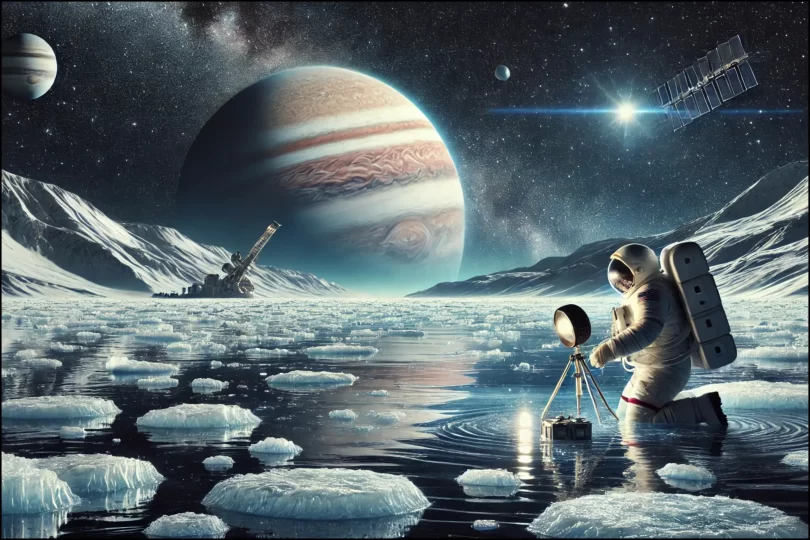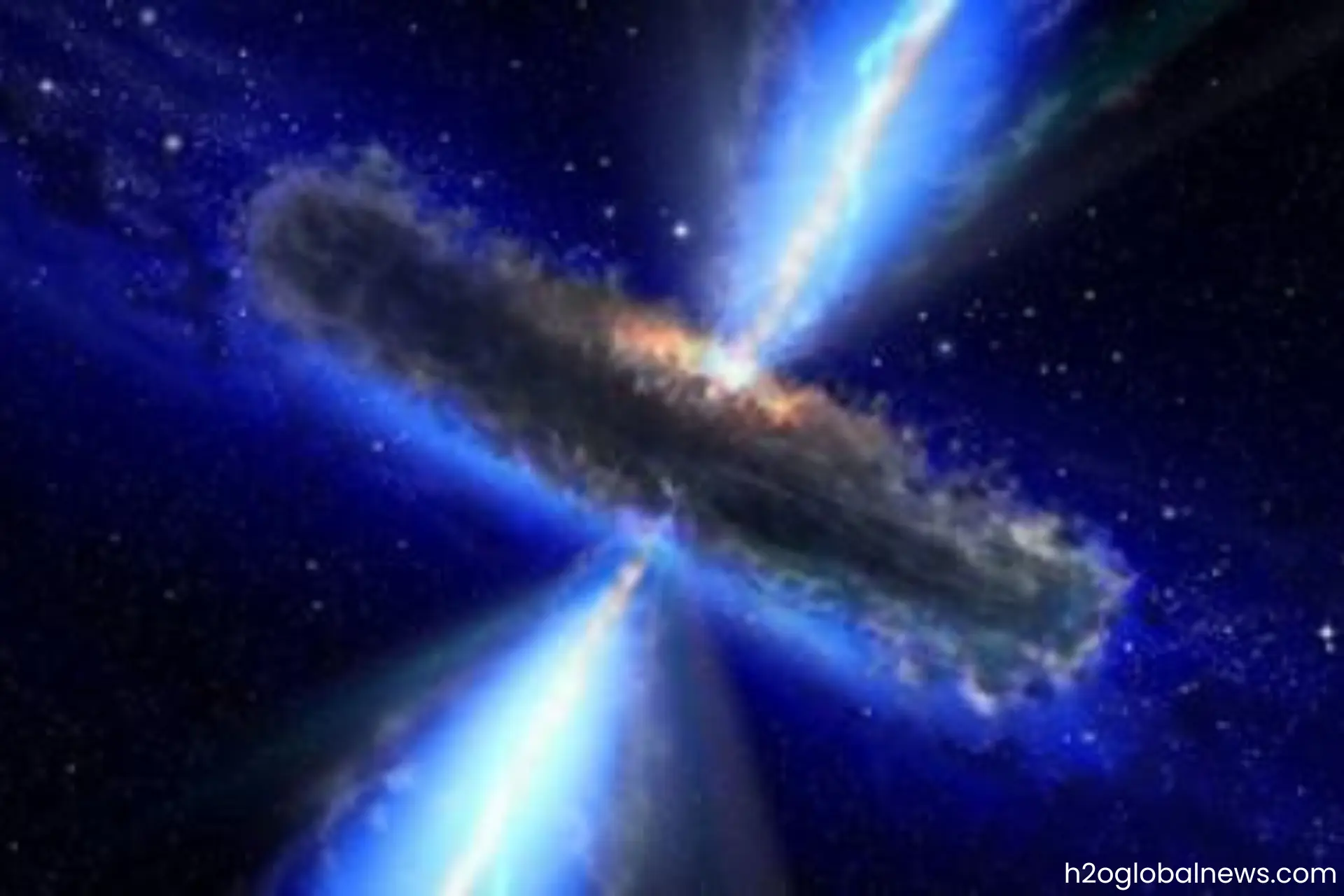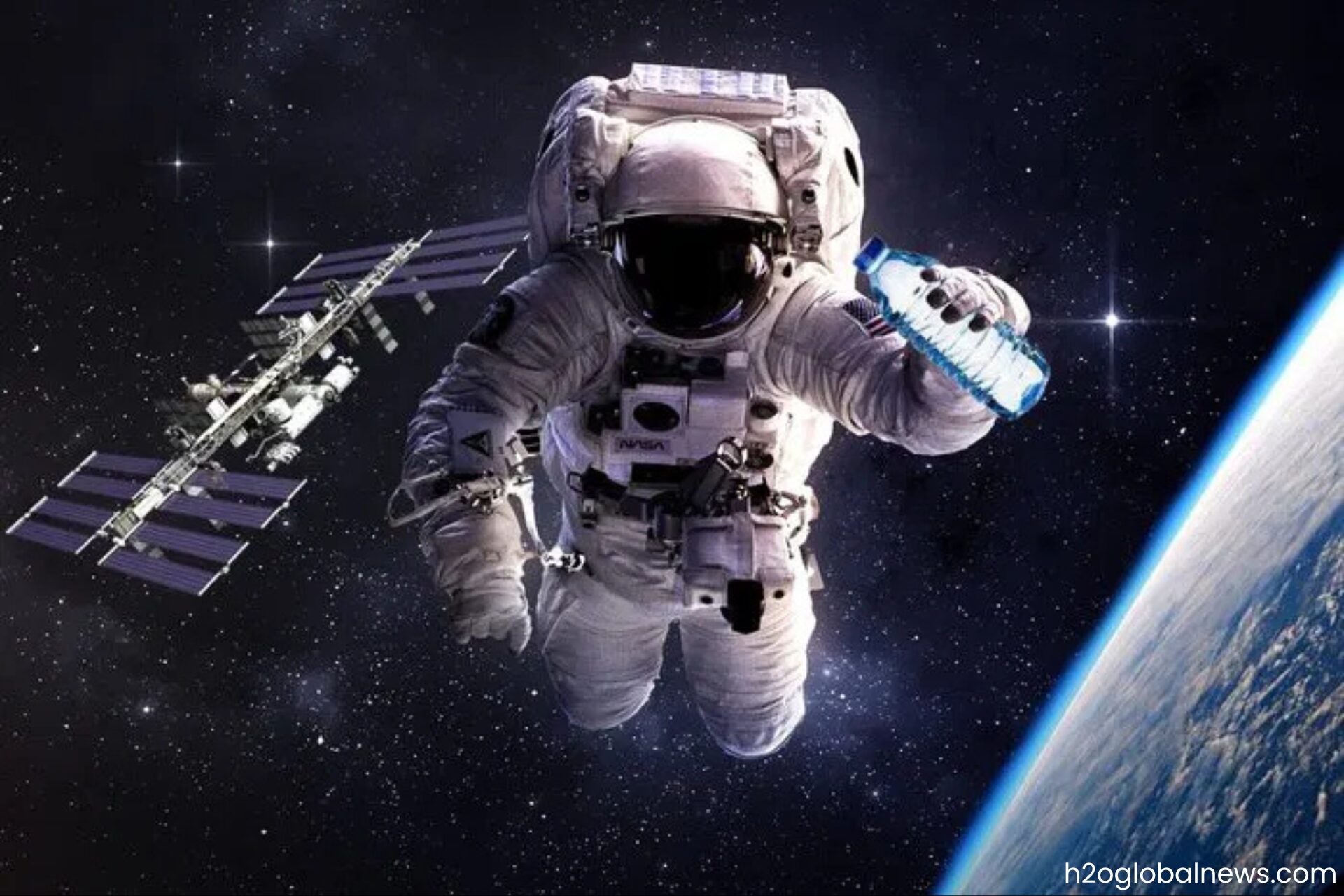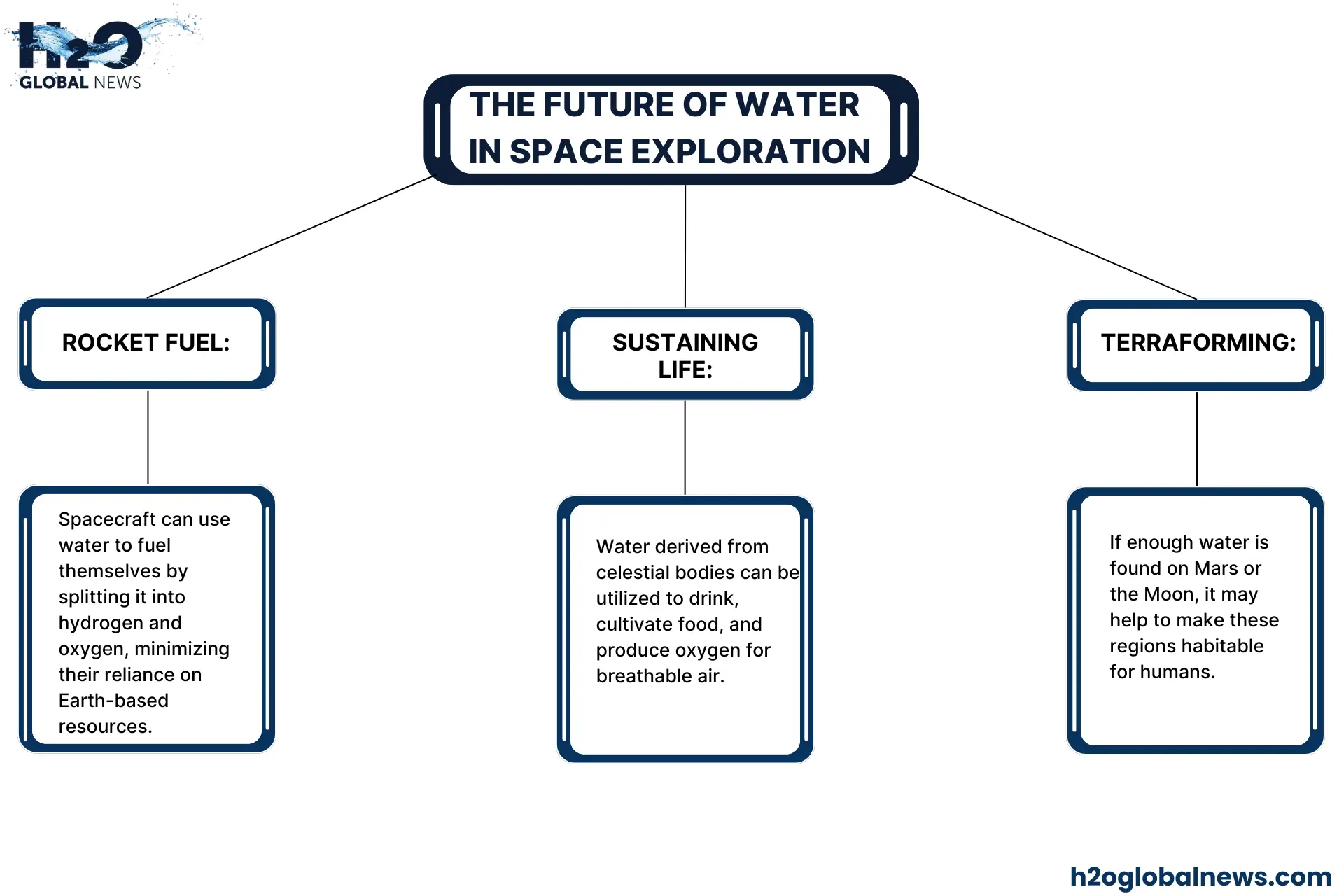Water is one of the most important resources for life, not only on Earth but also in space. In space, water is necessary for survival and living. For astronauts on the International Space Station(ISS), every drop of water is precious because 80% of water is recycled there. This indicates the importance of water in space.
Water is heavy and takes a lot of energy to transport into space, so recycling is the only option. However, this raises a lot of fascinating questions in our minds, such as what happens to water in space and how astronauts manage it. Does water freeze in space?
So, in this article, we’ll answer these questions for you and discuss the concept of water in space exploration.
Is There Water in Space?
Yes! The answer is a confirmed yes. In 2015, NASA discovered water on Mars using an imaging spectrometer on MRO (Mars Reconnaissance Orbiter) which gave us a strong evidence and hope about the possibility of life on the planet in the past.
In 2011, scientists discovered the largest water reservoir in the whole universe that surrounds a quasar called APM 08279+5255, which is 12 billion light-years away. NASA found ocean in space in many forms, including water, ice, and subterranean oceans on moons such as Europa and Enceladus, but not like how we found water on Earth.
Also, some quasars indicate the presence of water. A quasar is basically a super bright and powerful object in space having a big black hole inside. So, the discovery is that water is not inside the black hole but floating around it. Basically, it is a huge cloud of water vapor around a quasar and powered by a black hole.
These findings are remarkable because they show that outer space is water-rich in some areas, which could lead to future human habitation. One of Jupiter’s moons, Europa, is believed to have a vast ocean in space below its icy crust. Mars shows signs of the past water flow, but no artificial “canals” have been confirmed yet. Water vapor has also been observed surrounding the young stars, indicating that the water is rich during the process of planetary formation.
What Happens to Water in Space?
Astronauts on the International Space Station use a recycling system that recycles sweat and inhaled breath into drinkable water. Advanced water recycling technologies have been developed on Earth, which can also inspire space missions. Astronauts also grow lettuce and flowers in space using nutrient-rich water. The behavior of water in space is unique due to the lack of atmospheric pressure and gravity.
Here are some interesting questions:
1- Does Water Freeze or Boil in Space?
The behavior of water in space is not very normal. In some cases, in the absence of atmospheric pressure, instead of turning into a liquid, water can go straight from solid (ice) to gas (vapor), and this process is called sublimation.
On Earth, because of the atmospheric pressure, water boils at sea level at 100°C (212°F). While in space, there is no atmospheric pressure, so if you expose water to the vacuum of space, it immediately starts to boil, even at a very low temperature.
Also, the space is very cold. If the water doesn’t get enough heat energy, it immediately freezes instead of turning into a vapor.
But if you take water inside a spacecraft into space, it behaves normally because of the controlled environment. However, when it is exposed to the vacuum, it turns into vapor or ice, depending on the surrounding temperature.
Water can freeze in space but can also boil, depending on the surrounding temperature. In regions that are exposed to direct sunlight, the vacuum may cause water to boil into vapor. However, in shady or icy areas, it immediately freezes into ice.
2- What If you Take Water into Space?
In a zero-gravity environment, water forms spherical droplets due to the surface tension. This can make it difficult to handle water, as the droplets tend to float and cling to surfaces. Astronauts use specially sealed pouches and straws to drink water to make sure that it doesn’t cause malfunctions in the sensitive equipment.
The Role of Water in Zero Gravity
In zero gravity, water presents both difficulties and opportunities. On spacecraft like the International Space Station (ISS), astronauts use Water Recovery Systems (WRS) to recycle water from urine, sweat, and humidity. About 93% of the water used on ISS is recycled. This aligns with the concept of net positive water, which emphasizes sustainable water management on Earth and beyond.
Water also plays an important role in the space farming experiments. Astronauts usually grow plants by testing their ability to survive in microgravity. These experiments involve unique water delivery systems that depend on capillary action rather than gravity. The successful cultivation of plants in space indicates the possibility of sustainable life-support systems on other planets.
The Search For Oceans Beyond Earth
The concept of a “space ocean” is no longer limited to science fiction. NASA’s Cassini mission confirmed that Saturn’s moon, Enceladus, has a liquid ocean below its icy surface. Similarly, Europa’s ocean, covered by a thick layer of ice, might bear the conditions that are ideal for microbial life. Titan, another Saturnian moon, has lakes and rivers of liquid methane, although its frozen covering could conceal water beneath. A planet about 100 light years away, TOI-1452 b, is believed to be an ocean world and entirely covered by deep liquid water. Recent discoveries indicate that exoplanets in other solar systems may have Earth-like oceans, which fuels the quest for habitable worlds.
The Future of Water in Space Exploration
Water is not just essential for life; it is also a transformative resource in space exploration. For example, splitting water molecules into hydrogen and oxygen through electrolysis can generate rocket fuel and breathable air. These capabilities reduce dependency on Earth and make space missions more self-sufficient.
Mars and the Moon are prime targets for extracting water. Scientists believe that the presence of water on these celestial bodies could facilitate human settlements by providing drinking water, food cultivation, and even materials for constructing the habitats. As we tackle water scarcity on Earth, similar innovations are crucial for space exploration.
NASA and other space agencies continue to innovate technologies to locate and harness water resources in space. The successful utilization of these resources could redefine the future of interplanetary exploration and colonization.
Conclusion
Water plays a crucial role in space exploration and survival. Whether it’s being recycled for astronauts to drink or found on distant moons, water is essential for life in space. The discovery of water on other planets and moons, like Mars and Europa, gives us hope for future human exploration and even colonization. With ongoing advancements in technology, we are getting closer to using water in space for life support, fuel, and more. Ultimately, water in space could be key to making life beyond Earth a reality.
FAQs
Is Outer Space Water?
No, outer space is not water, but water exists in various forms across the cosmos, from ice on moons to vapor around the stars.
How much water is present in space?
Around 12 billion light-years away, scientists found 140 trillion oceans of water in space near a supermassive black hole.
Why Did NASA Stop Exploring the Ocean?
While NASA’s primary focus has been on space exploration, this does not imply that ocean research has been abandoned. The truth is that NASA has conducted extensive ocean research, often in collaboration with NOAA ( National Oceanic and Atmospheric Administration). However, space exploration garners more attention because it addresses broader existential questions, such as the potential for life beyond Earth and the survival of humanity in the universe.
Can we create water in space?
We can’t create water from nothing in space, we can produce it by combining hydrogen and oxygen, which are abundant in space. Water can also be harvested from ice found on moons, asteroids, and comets.











